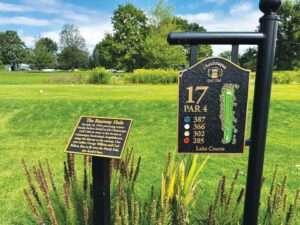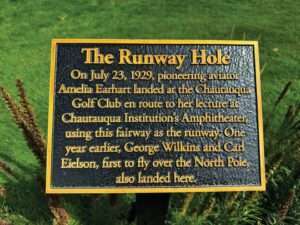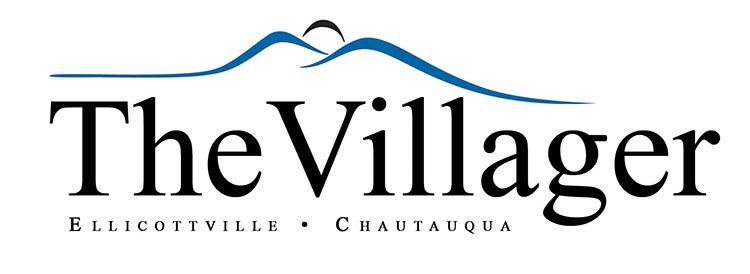By Bill Burk
The Chautauqua Golf Club is the biggest golf facility in the area, with thirty-six holes and a comprehensive practice center. Trevor Burlingame has been the superintendent at there for the past twenty-two years. He was an assistant at other local clubs before he took the head job at Chautauqua.
But that run has come to an end. He is moving on from the golf course to pursue a position outside of the confines of Chautauqua.
We caught up with Trevor for a “Q and A” session, reflecting on his tenure at the course.
Q: How did you get the job at Chautauqua?
Trevor: I heard through the grapevine Chautauqua was looking for a superintendent, called and interviewed with Stan Marshaus and was offered the position.
- What was the biggest change to the course since you started?
T: I’d say the tree removal work we’ve had done (over two-hundred trees). That improved playability and turfgrass health.
- What are you most proud of from the years you worked?
T: Two things, really.
One is the relationships I’ve made with club members, Chautauqua staff and my staff, some of my staff have been with Chautauqua for over fifteen years. I mentored two interns who have done quite well for themselves. One is James Hayes, who will be  replacing me as superintendent at Chautauqua. I’m proud I’ve left the club in a good place.
replacing me as superintendent at Chautauqua. I’m proud I’ve left the club in a good place.
The second is what I did in my maintenance program to be more environmentally friendly. I eliminated the use of phosphorus fertilizers two years before New York made it a law and reduced other fertilizer inputs substantially while keeping the quality of playing conditions to a high standard. We allowed buffers to grow along our ditches and ponds to assist in filtering sediment and nutrients before hitting our waterways, and we began using chemicals that were safer for both the environment and our guests.
 Q: How has the course developed over the years (from grasses, irrigation, greens, evolving from old methods of cutting, etc.?)
Q: How has the course developed over the years (from grasses, irrigation, greens, evolving from old methods of cutting, etc.?)
T: So much change in the 110 years the course has been open. From ground driven mowers pushed by staff and pulled by horses to powered walking mowers to multiple unit riding mowers. Chemicals and fertilizers have evolved for the better. The days of dangerous lead arsenic and mercury-based pesticides are behind us, and newer, safer pesticides are being developed every year. Our newest sprayer has a GPS system that delivers pesticides and fertilizer with incredible accuracy. Grasses have been developed for better growth habit and resistance to pests, leading to fewer applied pesticides and fertilizers.
Irrigation has come a long way as well. Today’s system is controlled by a central computer program and a variable frequency drive pump station capable of pumping 1,200 gallons per minute. And fully autonomous mowers are beginning to appear at courses across the country.
Q: What can you say about the rumors of the course going back to the classic 18 holes?
T: We brought in golf course architect, Chris Wilczynski, to do a master plan as a road map for future course improvements. Part of that plan brought the possibility of renewing the original Donald Ross layout by resurrecting the original 15th hole. As they often do, rumors got out of hand and it was assumed that this course of action meant the elimination of the Hill Course, or at least 9 holes of it. Elimination of the Hill Course was never part of the plan. It’s a shame that the rumor mill stopped what could have been the restoration of the original layout.
Q: What’s the future of the course in your opinion?
T: The course is in great hands. It has good leadership, and they made the absolute best hire to replace me. James Hayes brings exceptional experience and knowledge to Chautauqua and will quickly expand on what we’ve already done.
Q: What changes are left to do?
T: A few more trees need to be removed and probably a few planted in the right places. The irrigation system should be upgraded to allow for individual head control on the greens for better water application to keep them from being overwatered. But that comes at a considerable price and golf course maintenance costs have risen dramatically with little increase in cost to Chautauqua members and guests.
I’ll leave that to James. It’s in his hands now and new ways of maintaining a course are always popping up. But the message here should be that Chautauqua Golf Club will continue to grow, improve, and prosper for years to come.
The course will be fine with James. I really believe he is the right person for the job.
